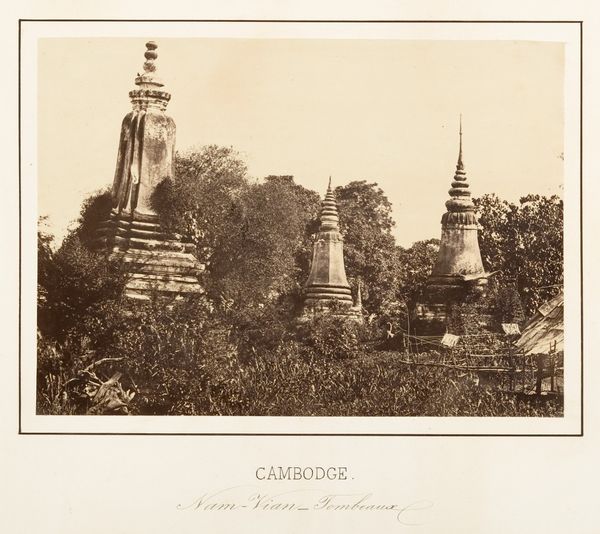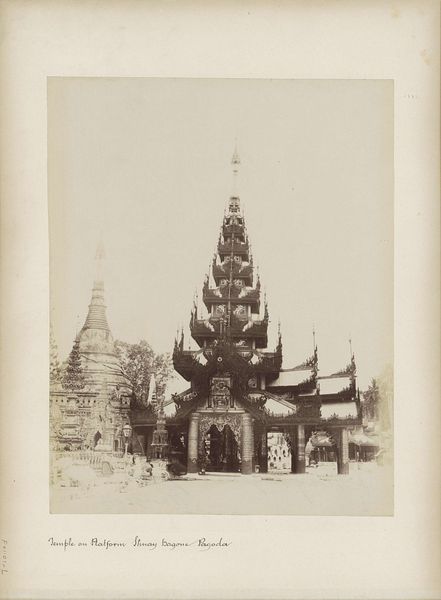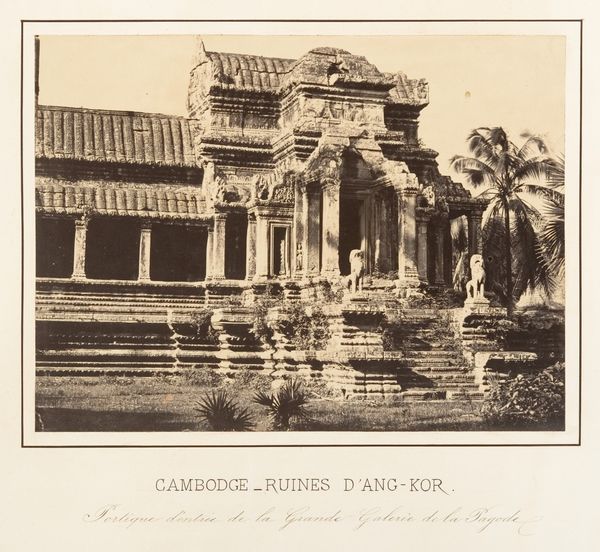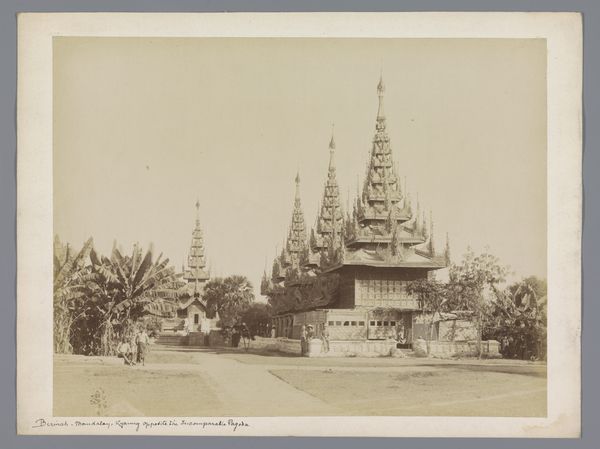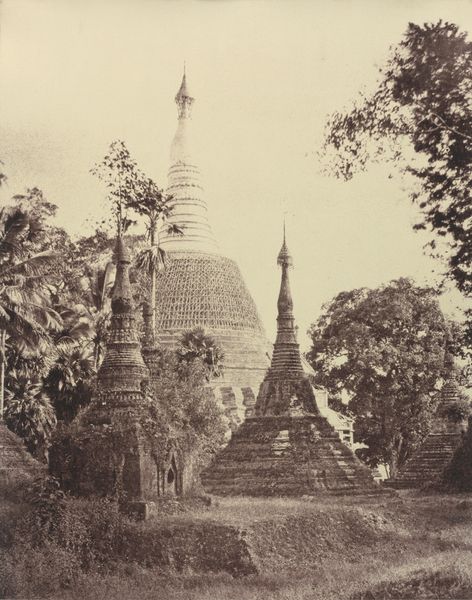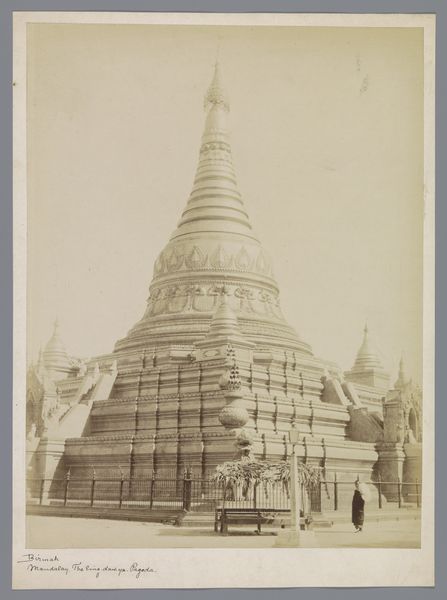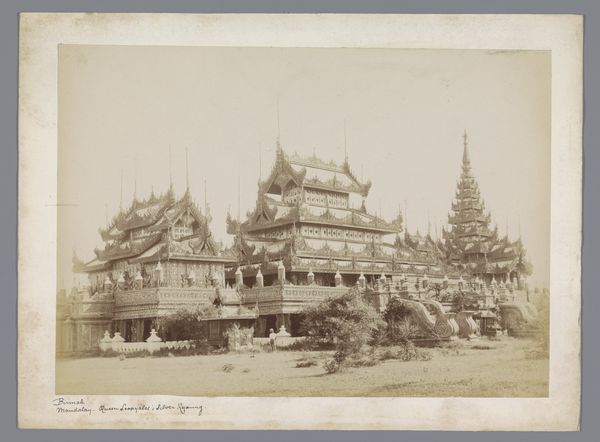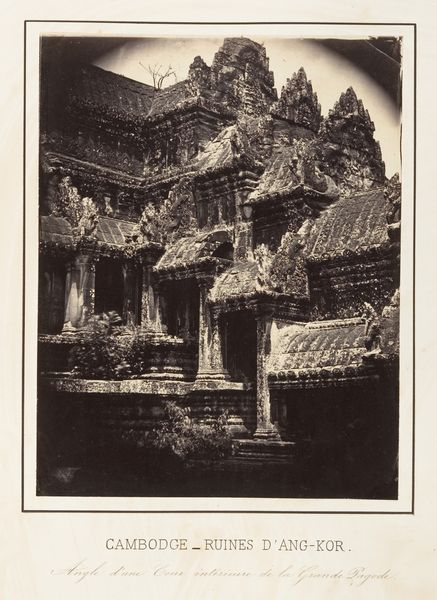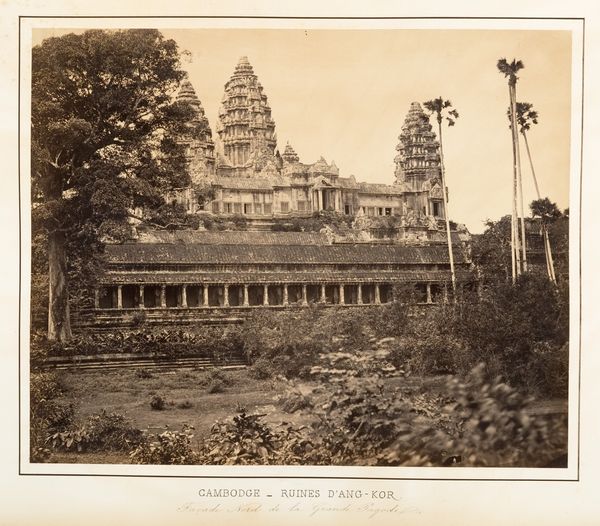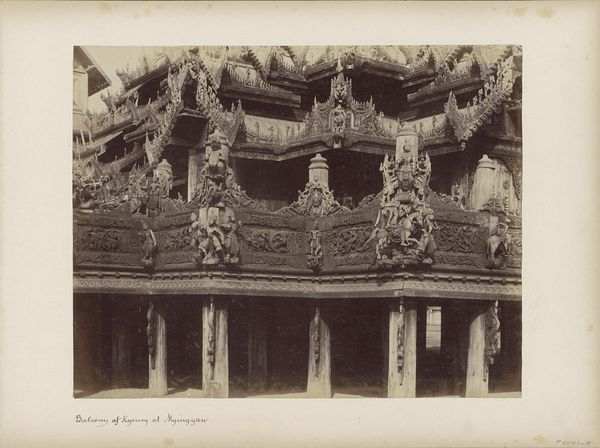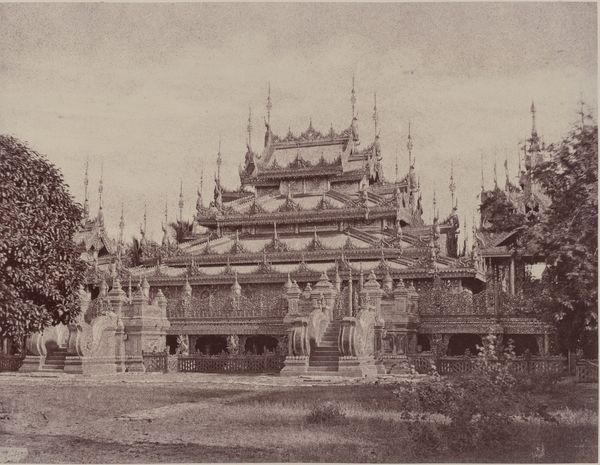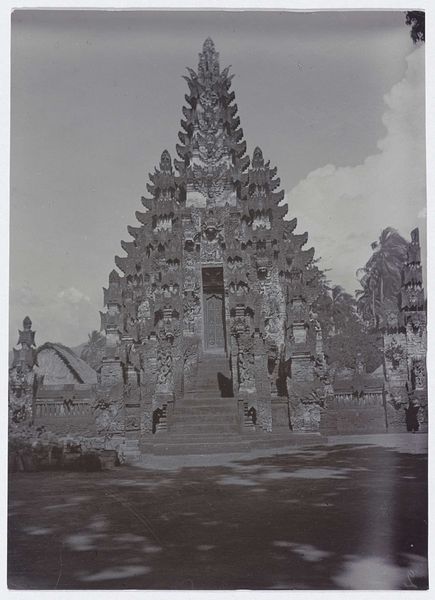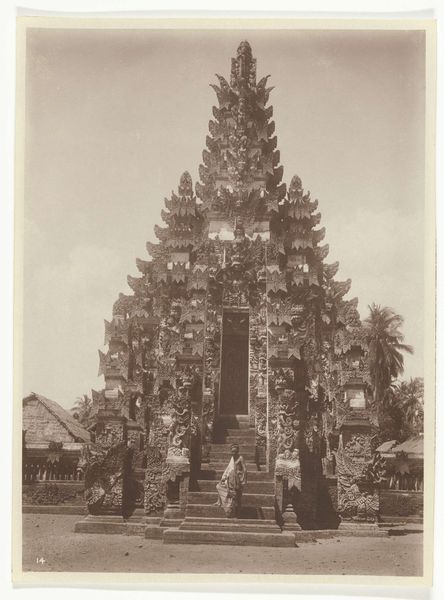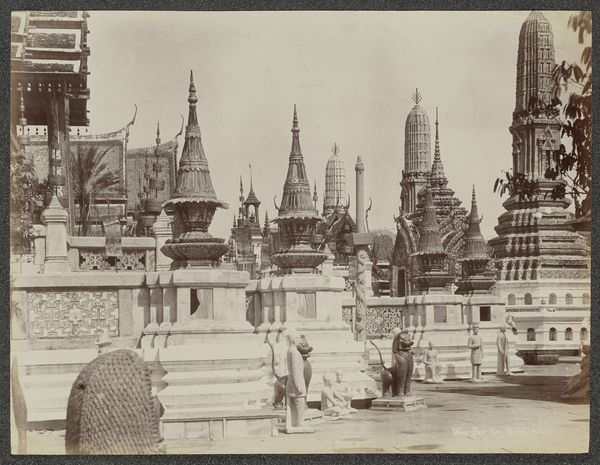
plein-air, photography, albumen-print, architecture
#
plein-air
#
asian-art
#
landscape
#
photography
#
historical photography
#
albumen-print
#
architecture
Dimensions: 16.6 x 22.7 cm (6 9/16 x 8 15/16 in.)
Copyright: Public Domain
Emile Gsell created this albumen silver print, titled "Nam-Vian - Tombeaux" sometime in the 19th century. What strikes us most about the sepia-toned image is how the architecture and the natural landscape intertwine. The pagodas, with their rhythmic, tapering forms, rise in a structured fashion, yet they're softened by the organic sprawl of the surrounding trees and foliage. This interplay offers a dialogue about permanence and impermanence. The meticulously constructed pagodas suggest a human attempt to create lasting structures, while the unruly vegetation represents the ever-changing, uncontrollable forces of nature. Consider the way Gsell frames the scene; he captures not just the grandeur of the architecture, but also the way it's being gently reclaimed by the earth. This could be viewed as a semiotic sign, hinting at the transient nature of human endeavors when set against the backdrop of time and nature’s indifference. The photograph reminds us that meanings aren't fixed, but always in flux, shaped by context and perception.
Comments
No comments
Be the first to comment and join the conversation on the ultimate creative platform.
